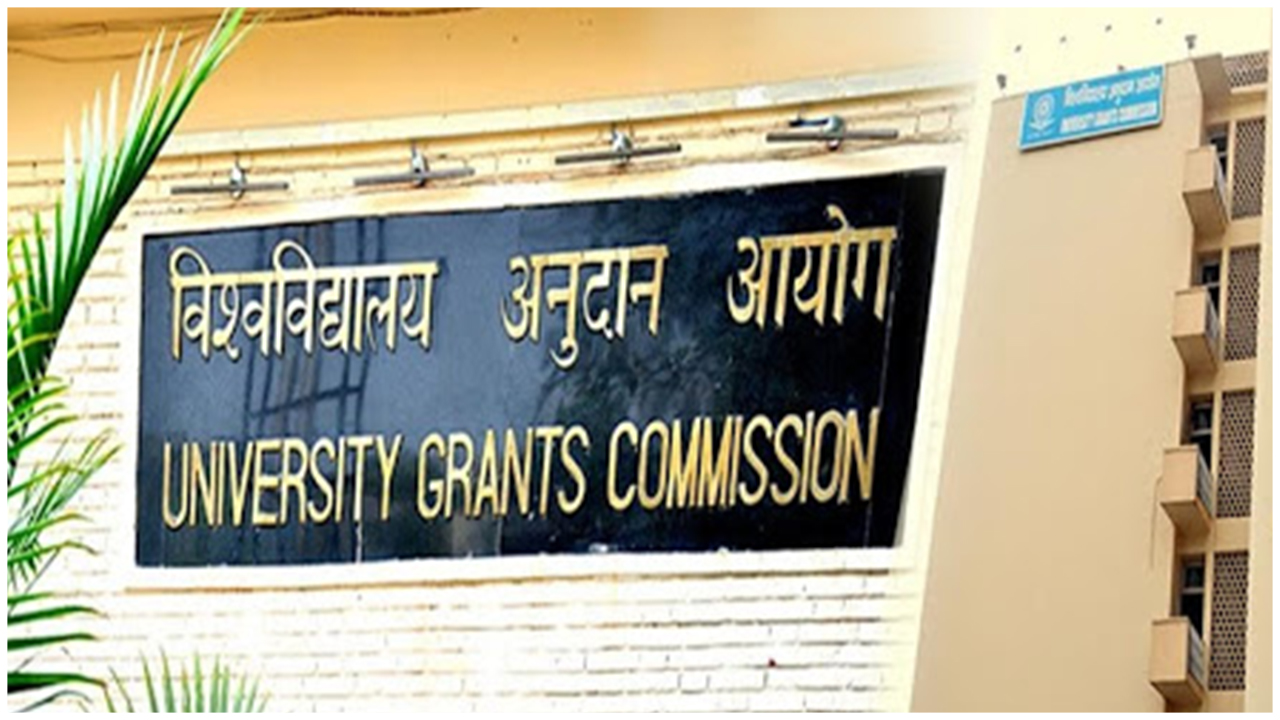In view of Covid-19 pandemic and subsequent lockdown, the University Grants Commission constituted an Expert Committee to deliberate and make recommendations on the issues related to the Examinations and the Academic Calendar to avoid academic loss and take appropriate measures for the future of students.
The Expert Committee was headed by Prof. R. C. Kuhad, Former Member, UGC and Vice Chancellor, Central University of Haryana, Mahendergarh, Haryana along with other members.
The Commission at its meeting held on 27.4.2020 accepted the Report of the Committee and approved the Guidelines on Examinations and Academic Calendar.
These UGC guidelines on Examinations and Academic Calendar for the Universities in View of COVID-19 Pandemic and Subsequent Lockdown were issued in presence of Union HRD Minister Shri Ramesh Pokhriyal 'Nishank' in New Delhi today. Secretary, Higher Education, MHRD Shri Amit Khare and senior officials of the Ministry and UGC were present on the occasion.
The following are the main recommendations in the guidelines issued by UGC today
1. Intermediate Semester Students: Will be graded based on internal assessment of the present and previous semester. In states where the COVID-19 situation has normalized, there will be exams in the month of July.
2. Terminal Semester Students: exams will be held in the month of July.
3. A COVID-19 cell will be constituted in every university which will be empowered to solve the issues of students related to academic calendar and examinations.
4. A COVID-19 cell in the UGC to be created for faster decision making.
The highlights of the Guidelines are as under:
Guidelines are advisory in nature.
University may chart out its own plan of action taking into consideration the issues pertaining to COVID – 19 Pandemic
Ensure Social Distancing.
EXAMINATIONS
Universities may adopt alternative and simplified modes and methods of examinations to complete the process in shorter period of time .
Universities may adopt efficient and innovative modes of examinations by reducing the time from 3 hours to 2 hours.
Universities may conduct Terminal / Intermediate Semester / Year examinations in offline / online mode, as per their Ordinances/Rules and Regulations, Scheme of Examinations, observing the guidelines of “social distancing” and keeping in view the support system available with them and ensuring fair opportunity to all students.
Terminal semester/ year examinations for PG/ UG courses/ programmes may be conducted by universities as suggested in the academic calendar. The timing of the examination may be considered appropriately by the universities, and examination may be conducted keeping in mind the guidelines of “social distancing”.
For intermediate semester/year students, the universities may conduct examinations,after making a comprehensive assessment of their level of preparedness, residential status of the students, status of COVID-19 pandemic spread in different regions / state and other factors.
In case the situation does not appear to be normal in view of COVID-19, in order to maintain “social distancing”, safety and health of the students, grading of the students could be composite of 50% marks on the basis of the pattern of internal evaluation adopted by the universities and the remaining 50% marks can be awarded on the basis of performance in previous semester only (if available). The internal evaluation can be continuous evaluation, prelims, mid-semester, internal evaluation or whatever name is given for student progression.
In the situations where previous semester or previous year marks are not available, particularly in the first year of annual pattern of examinations, 100% evaluation may be done on the basis of internal assessments.
If the student wishes to improve the grades, he/she may appear in special exams for such subjects during next semester.
This provision for intermediate semester examinations is only for the current academic session (2019-20) in view of COVID-19 pandemic, while maintaining safety and health of all the stakeholders and sanctity and quality of examinations.
Period of lockdown may be treated as ‘deemed to be attended’ by all the students/ research scholars.
Adopt appropriate strategies to facilitate the UG/ PG students pursuing Projects/ Dissertations. Universities may consider to assign review-based/ secondary data-based projects or software-driven projects, instead of laboratory-based experiments or field/ survey-based assignments to these students.
The universities may conduct the practical examinations and Viva-Voce Examinations through Skype or other meeting apps, and in case of intermediate semesters, the practical examinations may be conducted during the ensuing semesters.
The universities may conduct the Ph.D. and M. Phil. Viva -Voce Examinations through Video Conferencing using Google, Skype, Microsoft Technologies or any other reliable and mutually convenient technology.
Extension of six months period to the M.Phil.or Ph.D. students.
Every University shall establish a cell for handling student grievances related to examinations and academic activities during COVID-19 pandemic and notify effectively to the students.
The UGC will establish a Help Line for monitoring student grievances related to examinations and academic activities during COVID-19 pandemic.

 Every University shall establish a cell for handling student grievances related to examinations and academic activities during COVID-19 pandemic and notify effectively to the students.The UGC will establish a Help Line for monitoring student grievances related to examinations and academic activiti
Every University shall establish a cell for handling student grievances related to examinations and academic activities during COVID-19 pandemic and notify effectively to the students.The UGC will establish a Help Line for monitoring student grievances related to examinations and academic activiti









.jpeg)






.jpeg)





.jpeg)



.jpeg)
.jpeg)
